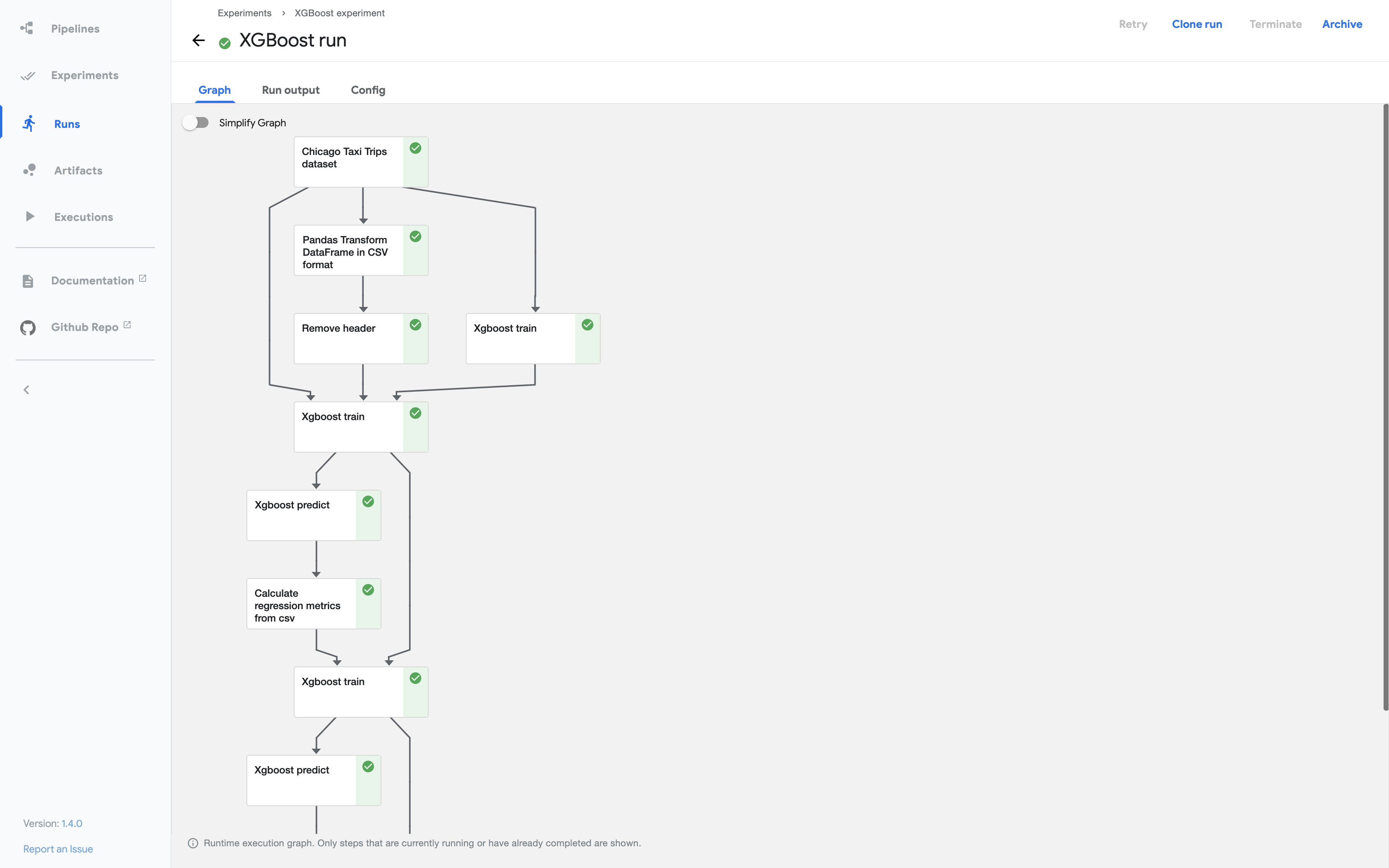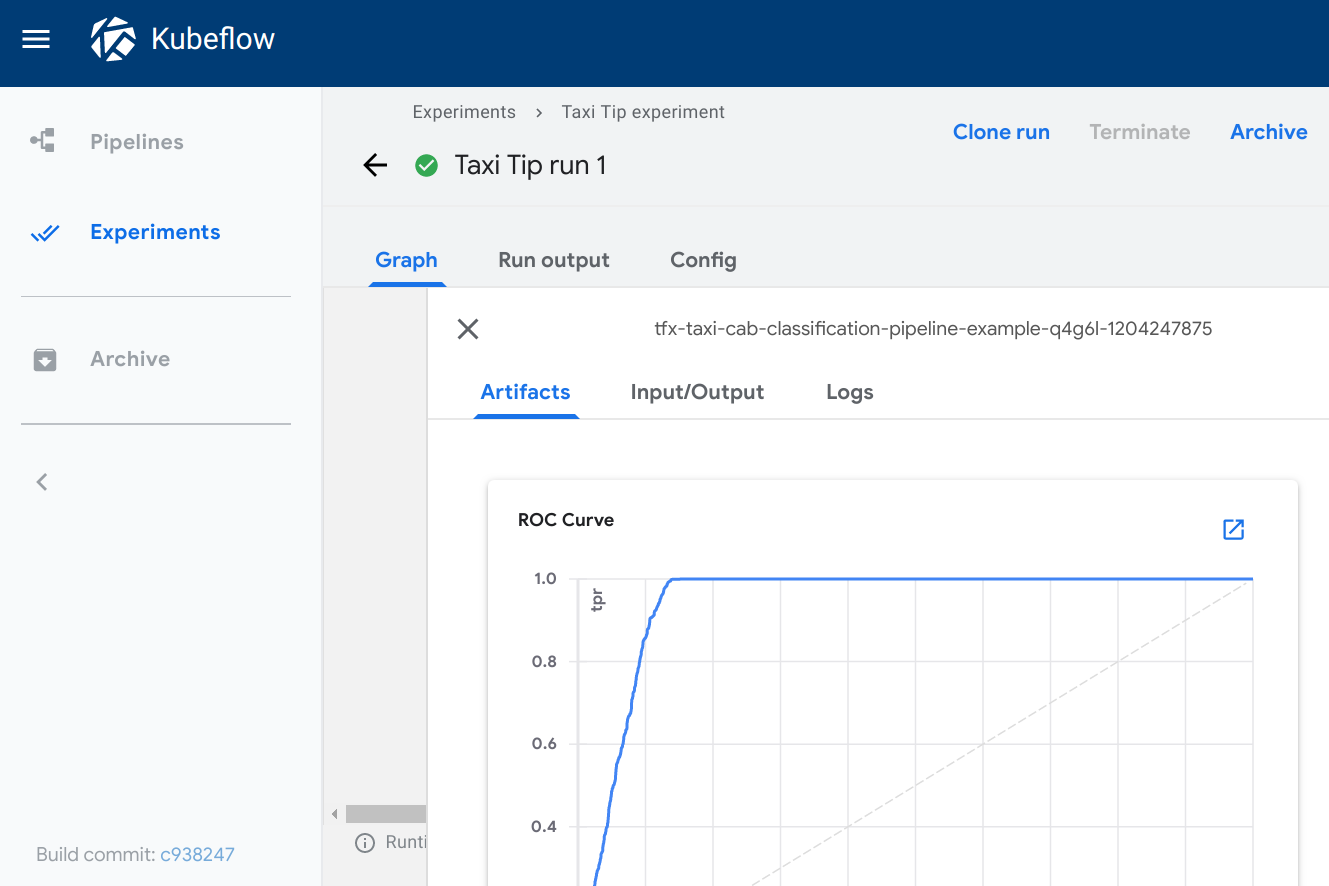Kubeflow Setup Guide
Try it on Brandy Test Server
- Ubuntu 18 machine with
- min 8 cores,
- 16GB RAM,
- 250GB storage
- Root privileges on a Ubuntu machine
- Docker CE
apt-get update apt-get install -y apt-transport-https ca-certificates curl software-properties-common curl -fsSL https://download.docker.com/linux/ubuntu/gpg | apt-key add - add-apt-repository \ "deb [arch=amd64] https://download.docker.com/linux/ubuntu \ $(lsb_release -cs) \ stable" apt-get update apt-get install docker-ce docker-ce-cli containerd.io - kubectl
curl -LO https://storage.googleapis.com/kubernetes-release/release/v1.15.0/bin/linux/amd64/kubectl chmod +x ./kubectl mv ./kubectl /usr/local/bin/kubectl - Minikube
curl -Lo minikube https://storage.googleapis.com/minikube/releases/v1.2.0/minikube-linux-amd64 chmod +x minikube cp minikube /usr/local/bin/ rm minikube- Start Minikube
minikube start --vm-driver=none --cpus 6 --memory 12288 --disk-size=120g --extra-config=apiserver.authorization-mode=RBAC --extra-config=kubelet.resolv-conf=/run/systemd/resolve/resolv.conf --extra-config kubeadm.ignore-preflight-errors=SystemVerification
- Download the kfctl here
- Unpack the tar ball:
tar -xvf kfctl_v1.0.2_<platform>.tar.gz - Edit your .bashrc or .zshrc or any others shell confige file like this:
export PATH=$PATH:<path to where kfctl was unpacked>
export KF_NAME=<your choice of name for the Kubeflow deployment>
export BASE_DIR=<path to a base directory>
export KF_DIR=${BASE_DIR}/${KF_NAME}
export CONFIG_URI="https://raw.githubusercontent.com/kubeflow/manifests/v1.0-branch/kfdef/kfctl_k8s_istio.v1.0.2.yaml"
mkdir -p ${KF_DIR}
cd ${KF_DIR}
kfctl apply -V -f ${CONFIG_URI}
- Set the environment variables in your .bashrc or .zshrc or any others shell confige file like this:
export INGRESS_HOST=$(minikube ip)
export INGRESS_PORT=$(kubectl -n istio-system get service istio-ingressgateway -o jsonpath='{.spec.ports[?(@.name=="http2")].nodePort}')
- then you could get the deployment url by
echo http://$INGRESS_HOST:$INGRESS_PORT
For more detail, please checkout https://www.kubeflow.org/docs/started/workstation/minikube-linux/
brew cask install docker
brew install minikube
then
minikube start --cpus 6 --memory 12288 --disk-size=120g --extra-config="apiserver.authorization-mode=Node,RBAC" --extra-config=kubelet.resolv-conf=/run/systemd/resolve/resolv.conf --extra-config kubeadm.ignore-preflight-errors=SystemVerification
--extra-config="apiserver.authorization-mode=Node,RBAC", please refer to this issue
# kubeflow
export PATH=$PATH:$HOME/.kubeflow/
export KF_NAME=rainforest
export BASE_DIR=$HOME/.kubeflow
export KF_DIR=$BASE_DIR/$KF_NAME
export CONFIG_URI="https://raw.githubusercontent.com/kubeflow/manifests/v1.0-branch/kfdef/kfctl_k8s_istio.v1.0.2.yaml"
export INGRESS_HOST=$(minikube ip)
export INGRESS_PORT=$(kubectl -n istio-system get service istio-ingressgateway -o jsonpath='{.spec.ports[?(@.name=="http2")].nodePort}')
- For more detail about kubernetes control, please refer to Minikube Website
- Kubeflow appliance
- MiniKF by Vagrant -> 跟 vmware 結合
- MicroK8s -> 部署極為方便,彈性較低
- Minikube -> Single Node Kubernetes 彈性大
Kubernetes Installation -> Server 需支援 Kubernetes,能發揮 Containerized 帶來的所有優勢
- Jupyter Server
- GUI 分配硬體支援(類似 CoLab)
- 支援 CPU, GPU 版 TF 1.5, 2.0
- Pytorch 支援待確認,但套件基本可自行安裝
- Katib for Hyperparameter Tuning
- Pipelines -> 感覺很酷炫,訓練過程可視化,修改方便!?
- KFServing
- Frameworks for Training



